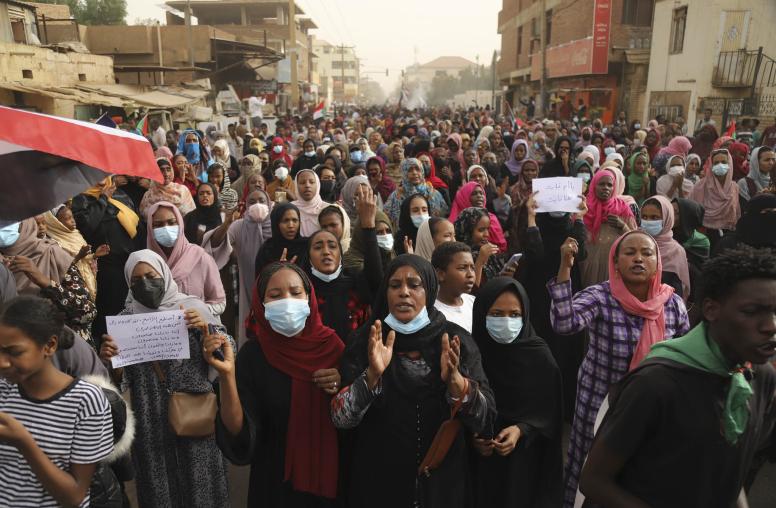Civil Resistance 3: Sustaining the Movement
This course addresses the challenges and issues that arise after a civil resistance movement has won. How do movements sustain and build on the gains they have made?

Course Overview
The rise of nonviolent, people power movements around the world has become a defining feature of the 21st century. Organized citizen campaigns and movements using nonviolent methods are challenging formidable opponents: unaccountable governance, systemic corruption, institutionalized discrimination, environmental degradation, dictatorship, foreign military occupation, and violent extremism. Their “weapons” are not guns or bombs but rather protests, boycotts, sit-ins, civil disobedience, building of alternative institutions, and hundreds of other nonviolent tactics. Combined with the use of traditional political and legal means, these movements have and continue to shape political, social and economic change across the globe.
This course, part 3 of our civil resistance series, examines how nonviolent movements can sustain and build on the gains they have made and how to transition into stable, sound, and inclusive governance.
Learning Objectives
Participants in this course will:
- Learn from a diverse set of activists, scholars and practitioners through stories, research, and exercises.
- Transform how they analyze and think about conflict – its value, mode, and outcomes.
- Engage with a growing community of learners and experts enrolled in the course through a continuous series of live, interactive, and collaborative online events.
- Co-create new knowledge and insights to enhance and update the course as the field evolves.
Activists, civil society leaders, scholars, regional experts, policymakers from governments and international organizations, journalists, religious figures, educators/trainers, and those with a keen interest in how ordinary people are transforming conflicts through nonviolent action are encouraged to enroll and join this powerful global conversation.
If you cannot view the video, click here to download it.
Agenda
Chapter 1 - Post-Conflict Governance
This chapter introduces the challenges activists face after the movement and in sustaining their message. It discusses the role nonviolent campaigns have in establishing post-conflict democracy, highlighting the importance of good governance. It presents the strategic framework for stabilization and reconstruction.
Chapter 2 - From Protest to Politics
The purpose of this chapter is to examine the different types of actors that work to establish or re-establish a system of good governance and identify tensions that may arise in a post-conflict environment. It provides insight on sustaining civic engagement and how groups work to fight corruption, while examining case studies in India and Brazil.
Chapter 3 - Gender, Intersectionality, and Nonviolent Resistance
This chapter defines gender and examines the influence of gender dynamics on women’s contributions to nonviolent movements. It discusses the contributions intersectionality adds to a movement and why both gender and intersectionality are necessary to reflect on.
Chapter 4 - Conclusion
This chapter discusses the impact of Mohandas Gandhi’s work provided the framework for and inspired change in Poland. This chapter will assess the learner’s understanding of key concepts presented throughout this course and provide a space for learners to reflect on the course material.
Instructors and Guest Experts
Course Instructors
- Daryn Cambridge, Professional Development Portfolio Manager, EPIC, Training Resources Group
- Maria J. Stephan, former Director of the program on Nonviolent Action, U.S. Institute of Peace
Guest Experts
- Shaazka Beyerle, Jennings Randolph Senior Fellow, U.S. Institute of Peace
- Ann-Sofie Jespersen, Board Member, Rhize
- Kathleen Kuenhast, Director, Gender Policy and Strategy, U.S. Institute of Peace
- Illana Lancaster, Senior Program Officer, U.S. Institute of Peace
- Debra Liang-Fenton, Senior Program Officer, U.S. Institute of Peace
- Alison Milofsky, Director, Curriculum and Training Design, U.S. Institute of Peace
- Althea Middleton-Detzner, Director, Peacebuilding Engineers Program, PeaceTech Lab


